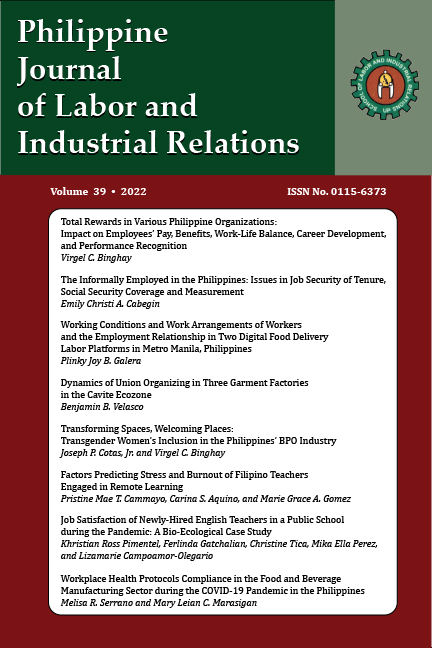The Informally Employed in the Philippines: Issues in Job Security of Tenure, Social Security Coverage and Measurement
Abstract
Informal employment is persistently pervasive in the Philippines with 2021 estimates indicating more than 7 in 10 Filipino workers as informally employed, defined as workers lacking effective coverage from labor and social protection laws. About 44% of the informally employed were working in the formal sector, 50% were in the informal sector and the rest in private households. The paper examines the issues of security of tenure, social security coverage, and measurement of informal employment in the Philippines. Philippine labor laws provide full protection for workers in regular employment including the security of tenure, and full entitlement to mandated wages and social benefits. To save on labor costs, many employers who are legally obligated to pay about two-thirds of the social security contribution on behalf of every employee, evade or avoid compliance by non-declaration of some employees or misclassifying workers as independent contractors. The paper recommends the enactment into law of the Magna Carta for Workers in the Informal Economy, the adoption of social security schemes that consider the limited contributory capacity of informal workers, the promotion of collective representation and bargaining for informal workers, the strengthening of labor enforcement, and the inclusion of questions in the Labor Force Survey that measures the informality of employment in the context of Philippine labor laws.


